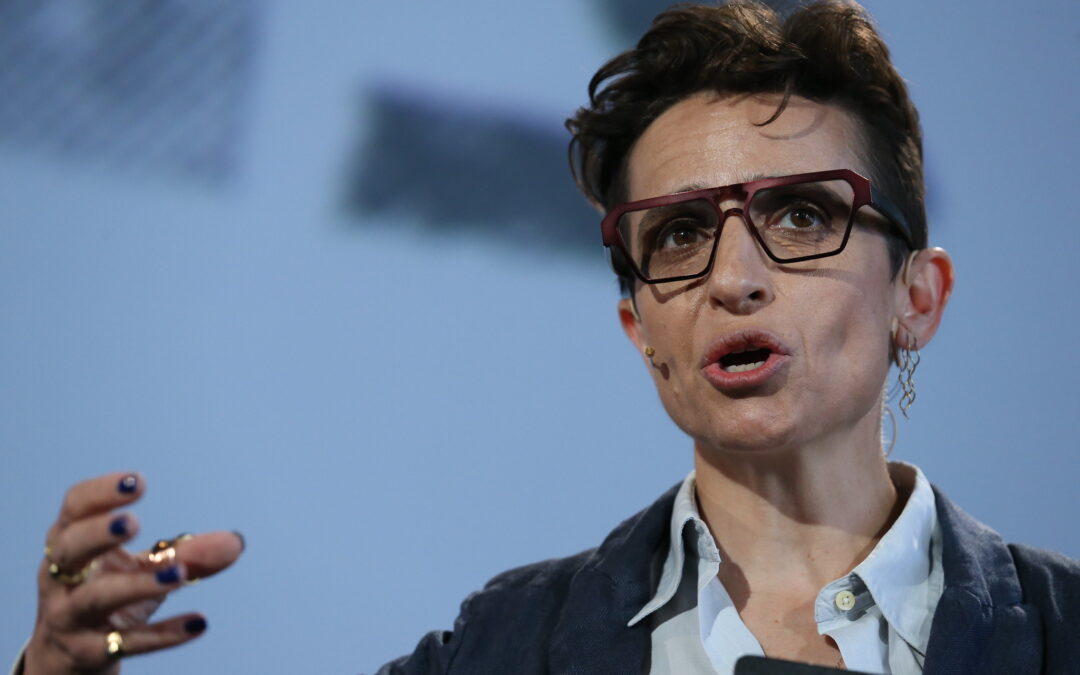Russian-American writer Masha Gessen has responded to a storm of controversy in Poland over an article in The New Yorker magazine about Polish complicity in the Holocaust. The text has drawn widespread condemnation, including from the director of the Auschwitz museum, while Gessen revealed they have received death threats.
In the article – entitled “Historians under attack for exploring Poland’s role in the Holocaust” – Gessen discussed a recent libel case in which two prominent Holocaust scholars, Jan Grabowski and Barbara Engelking, were ordered by a Polish court to apologise to the relative of a man who they wrote had been involved in the death of Jews.
Gessen, who uses they/them pronouns, claimed that the “two historians’ legal troubles stem from the Polish government’s ongoing effort to exonerate Poland – both ethnic Poles and the Polish state – of the deaths of three million Jews in Poland during the Nazi occupation”.
Many commentators in Poland – from all sides of the political spectrum – responded by criticising Gessen for what they said were distortions and inaccuracies in the text.
They noted that, while there is debate over the extent and nature of Polish complicity in and responsibility for the deaths of some Jews in occupied Poland during the war, the idea that Poles or the Polish state were responsible for three million deaths is false.
Gessen also wrongly claimed in the text that another Holocaust scholar, Jan Gross, had been charged with the crime of insulting the Polish nation (he was investigated but never charged).
Researchers working on complicity of a minority of Poles (certainly not the state) in the Holocaust are indeed being harassed by the Polish government and their right-wing allies. I stand with you in strong defence of these researchers, and have often spoken out on the issue.
— Stanley Bill (@StanleySBill) March 27, 2021
Among those to criticise Gessen was the director of the Auschwitz-Birkenau Memorial and Museum, Piotr Cywiński, who said that the article was full of “lies and distortions”, and suggested that it was akin to Holocaust denial or revisionism.
A deputy Polish foreign minister, Szymon Szynkowski vel Sęk, promised that there would be a “strong diplomatic reaction” to the “manipulative” article. He said that the Polish embassy in Washington has written to The New Yorker’s editorial offices. Poland’s ambassador to Israel, Marek Magierowski, criticised the article for “Holocaust distortion”.
The CEO of the American Jewish Committee, David Harris, said that the subtitle of Gessen’s article is “defamatory”. The Polish Center for Holocaust Research, which is led by Engelking and published the book over which she was sued, also said that the article contained a “lie” that should be corrected.
We @AJC_CE were right.
Polish Cntr for Holocaust Research, headed by Prof. Engelking:
"no one ever claimed … that Poles or the [PL] state are responsible for the death of 3M Jews. This is not only inconsistent with historical facts, but simply a lie."https://t.co/QZJlRkbUIG pic.twitter.com/4rMnyRO0G6
— Sebastian Rejak (@SebastianRejak) March 28, 2021
In response to the controversy, Gessen issued a statement on Sunday evening to Polish daily Gazeta Wyborcza, which they also published on Facebook. They noted that they had received a “barrage of hate mail, including death threats” over the weekend.
However, Gessen argued that the anger was based on a “linguistic and logical” misunderstanding of their words, which never suggested that Poles or Poland are responsible for the deaths of three million Jews during the war.
Moreover, they added, writing that the Polish government is trying to prove something false does not mean that the author believes it to be true. Gessen said it was “frankly shocking that so many people and institutions, including the Aushcwitz [sic] Museum, have chosen to ignore the rules of logic”.
“What I have seen in the last couple of days…is the very opposite of a climate in which intellectual inquiry and nuanced story telling are possible,” they wrote. “This gives me…a taste of the intellectual climate in which Polish historians of the Holocaust now live.”
Poland’s national-conservative government has pursued an active “historical policy” since coming to power in late 2015. This has included efforts to promote knowledge of how some Poles helped Jews during the war, while downplaying the involvement of others in crimes against them.
These policies – which included a move to criminalise the false attribution of responsibility for the Holocaust to the Polish state or nation in 2018 – have drawn widespread international criticism.
The ruling Law and Justice (PiS) party, however, claims that Poles have been victims of a “pedagogy of shame” designed to prevent them from feeling pride in their history.
Main image credit: David Silverman Photography/MIT Media Lab (under CC BY-SA 2.0)

Daniel Tilles is editor-in-chief of Notes from Poland. He has written on Polish affairs for a wide range of publications, including Foreign Policy, POLITICO Europe, EUobserver and Dziennik Gazeta Prawna.




















